- Home
- Douglas Niles
The Crown and the Sword tros-2
The Crown and the Sword tros-2 Read online
The Crown and the Sword
( The Rise of Solamnia - 2 )
Douglas Niles
Douglas Niles
The Crown and the Sword
CHAPTER ONE
THE LORD MARSHAL
A column of dust marked the progress of two dozen horsemen across the flat expanse of the central Vingaard Plain. They rode in a neat file of pairs, and though the men and horses were coated with a layer of grit indicating a long, hard ride, they maintained ranks with military precision. The mounts were large, long legged, and nimble, and they crossed the miles with an easy canter. Even now, as they moved into a region where the ground rose and fell, their gait remained steady, their course as true and straight as the flight of an arrow.
At the head of the column rode a single man, wearing the garb of a knight with the unusual feature that his breastplate was not adorned with any symbol-as if he belonged to none of the orders, not to the Crown, the Sword, or the Rose. His shoulders and back were draped with a woolen cape that covered the back of his saddle and flapped loosely. His horse was a nondescript roan mare, a little sloppy of gait, though her eyes flashed with intelligence.
“We approach the Narrows, Lord Marshal,” commented a rider, spurring his mount as he came up on the left of the man. The rider wore the epaulets of a knight captain, though, like the one he called Lord Marshal, he bore no insignia upon his armor.
The lead knight merely nodded, taking in the changing surroundings through narrowed, but far-seeing, eyes. Only after studying the terrain for several moments did he raise his hand and point in a direction slightly to the right of their current bearing.
“General Dayr will gather the Crown Army there. We need to reach him before nightfall.”
“Aye, my lord,” replied the captain.
Without breaking stride, the lord marshal tugged his reins and swerved his horse in the new direction. No word was spoken, but the rest of the company followed suit.
The horses slowed to a trot as they worked their way down the steep slope of a ravine then surged and galloped up the other side. The formation opened only slightly at the increased speed, and the close ranks held firm as they moved fleetly over increasingly broken ground.
The column of riders came upon the army encampment in the scant shelter against the wind provided by a low hill. Lookouts on top of the elevation had spotted their approach and passed word down to the troops who were making their supper preparations. Two knights, a captain and a gold-caped general, left the warmth of their cook fire to greet the new arrivals.
“My Lord Marshal, welcome! Your timing is perfect. I plan to attack Ankhar’s North Wing by dawn tomorrow,” reported the gold-caped general. He was a handsome knight with the flowing mustaches of a traditional Solamnic. The insignia of the white Crown was prominent upon his breastplate.
“General Dayr, Captain Franz,” replied the lord marshal, nodding to the two knights as willing men-at-arms took his horse. He dismounted with the ease of a natural horseman, stretched, and for just a moment, winced at the pain of cramps in muscles that only a few years earlier would have made no complaint at the end of such a ride. Though his beard and hair were black, a trace of thin lines marked the area around his hard, cold eyes. His beard was short, neatly trimmed, and accented the outline of a strong, jutting chin.
“You made good time, my lord. We didn’t expect you until late tomorrow.”
“General Rankin and the Swords are advancing on the river. The enemy is in retreat in the south. Here, on his north flank, is the point of decision. I wanted to be here. And naturally, my Freemen were eager to ride.”
The lord looked almost with affection at the two dozen men of his personal guard. Like himself-and unique among the three armies of Solamnia-they did not wear the insignia of a knightly order. Instead, their loyalty-and their lives-was pledged to the leader who had forged those sometimes fractious forces into one great weapon of war. Captain Powell, the leader of the guard, had been an influential knight in the hierarchy of Palanthas but had renounced that post to serve the leader who, he devoutly believed, was the only man who could restore the realm of Solamnia to its past glories.
“Very good,” acknowledged the general. “Would you like a look at the position before dark?”
“Yes, right away.” The lord marshal turned to the captain of the Freemen, the man who had ridden at his side when they entered the camp. Another knight, his long mustaches caked with the dust of the ride, was making a report to the captain. Both men stood erect when the lord marshal looked their way.
“Captain Powell, come with us. Sergeant Ian, see that the men get something to eat. I want the Freemen to be well rested in the morning.”
“Aye, my lord,” both replied in unison.
The general and the two captains accompanied their army commander in a brisk walk up the low hill. From the crest, they could see a long distance.
The scene was dominated by a deep gorge, like a wound where a god had cleaved his sword into the flesh of the world. The Upper Narrows of the Vingaard River formed a bottleneck in that mighty flowage, a series of raging torrents and spuming cascades created as the water surged between two confining, looming walls. Even as the descending ground forced the Vingaard northward with relentless, irresistible velocity, the constricted channel compressed and accelerated the current. This was a wild place-the rocky ground around the river was inhospitable to farmers, and the water within its sheer-walled gorge too difficult for grazing animals to reach. The plains above the gorge were dry and dusty, bereft of trees and other vegetation, and subject to bitter, cold winds in winter and scorching, dry heat in summer.
It was on the west bank of this river gorge that two large military forces faced each other. The camp of the Crown Army was well situated between a pair of ridges radiating out from the round hill. With a company of infantry and another of archers on top of the hill, it was a formidable position. General Dayr had garrisoned both of the ridges flanking his camp and had an extensive picket line, with mounted outriders, guarding the main approach.
But all this was of secondary interest to the lord marshal. His attention was focused on the enemy, arrayed in a jagged, dirty smudge of fortifications backed by troops and war machines, all forming a semicircular bulge, with the gorge and the valley of the Vingaard at its right and right rear. There was a route of access-or retreat-behind the enemy camp, leading southward along this side of the river. Several paths dropped from the edge, vanishing into the depths of the canyon beside both camps.
“Is there a route through the gorge?” asked the lord marshal.
“A narrow path, my lord. We have a company defending it, and Ankhar has a similar force down there. It is a standoff-no advance for either side. And no retreat, either, considering that both paths are overlooked by the enemy.”
“Good. Your men only need to stand firm down there.”
“Ankhar himself is in the camp,” Dayr noted. “We spotted him late yesterday afternoon.”
“He knows his central and southern wings are already across the Vingaard. Here is where he has chosen to make his stand and fight,” the commander remarked. “I have come here for the same reason.” He turned toward Captain Powell of the Freemen, who was sitting astride his horse to the marshal’s right. “Go to the baggage train and find the wagon we dispatched here. Pull out a dozen of the casks that came from the Compound.”
“Very well, my lord!” Powell saluted and rode away.
If Dayr was curious about his orders, he knew better than to ask. “Would you like to review the disposition of my forces?” asked the general instead.
The lord marshal shook his head. “No, I’m sure you have prepared well. But
tell me, what about the trenches?”
He indicated the fortifications around the enemy camp. Deep gashes in the ground, scored in a zigzag pattern, shielded the whole array of Ankhar’s troops.
“Something novel is called for, don’t you think, my lord?” Dayr turned and gestured to a young knight. The man had light golden hair, worn long, with the emblem of a crested bird on his tunic. “This is Sergeant Heath of the Order of Clerists.”
The commander nodded. “The priest-knights are finally arriving at the front, I see.”
Sergeant Heath saluted stiffly. “I beg my lord’s pardon for the delay. I assure you that it was not caused by unwillingness on the part of my company. The Council of Whitestone was slow to react, but as of this year, there are mystics and Kingfishers both sailing for your shores.”
“I understand-Sir Templar has apprised me of the resistance from Lord Liam and the rest of the council. So I am doubly pleased to see you. How large is your company?”
“I have a dozen priests, my lord, and an equal number of acolytes. We pledge our swords-and our spells-to your cause.”
“Very good.” The lord marshal gestured at the enemy entrenchments. “Now tell me what you plan to do about those.”
The camp of the Crown Army was quietly astir by an hour after midnight. Captain Powell, with his Freemen and the casks from the Compound, was already gone. Now Sergeant Heath and his Clerists slipped away from the command post and immediately melted into the full darkness that descended after moonset. Each knight-cleric wore a cloak of grayish brown and had smudges of the same color darkening the skin of their faces and hands, so they may as well have been invisible as they closed on the nearest trenches of the enemy position. Leaving their weapons and armor behind, they advanced with stealth and concealment as their only protection.
After an hour of careful advancement, the mystics were in position, only a few dozen feet short of the deep, wide trenches of Ankhar’s army. Each priest-warrior was alone and knew his task; they all remained silent and in their camouflage, invisible to the enemy sentries.
Heath himself knelt before the broadest section of trench. Barely daring to breathe, he watched the shadowy figures of goblins and ogres clomping back and forth on sentry duty behind the ditch. He waited, lying flat on the ground, until he was certain the rest of his men were ready.
Night still cloaked them in utter darkness as the knight-priest rose to a kneeling position. He held a fistful of gritty clay in his hand as he murmured a prayer-and an appeal-to Kiri-Jolith. Soon he had worked the material into a hard lump. He felt the answering presence of his god, a powerful blessing of magic, and in one smooth gesture rose to his feet, shouted the climactic words to the spell, and hurled the lump of dirt into the trench.
All along the line, the Clerist knights worked the same clay magic. The sudden noise of the spellcasting alerted the brutish defenders, who rushed forward to launch spears and arrows into the darkness-even though the mysterious attackers were already falling back.
Behind them they left the results of their magic: twenty-two earthen bridges, each spanning a section of the army’s trenchworks.
“Light!” cried General Dayr, as he heard the culminating words of the Clerists’ spellcasting. “Bring out the torches!”
Flames immediately erupted from a hundred barrels, all positioned along the front of his army-directly along the lines of advance for the Crown Army’s light cavalry. All three companies of the Thelgaard Lancers waited there in ranks, already mounted, prepared for the signal. These riders, lightly armored and riding very fast horses, were trained to carry long lances in the charge. But this morning, their arms would be unique.
Each rider carried several dry torches in one hand. As the oil-filled barrels were ignited, the horsemen started forward, their disciplined mounts filing close by the blazing containers. As the line of riders passed, each man thrust the head of his torch into the oil. The dry brands instantly ignited. Without hesitating, the riders spurred their horses into a canter. The lines of cavalry were eerily illuminated by the blazing torches bobbing and waving over each man’s head, and those columns rode directly toward the enemy camp.
Where a few moments earlier Ankhar’s troops had been lolling casually behind deep entrenchments, these defenders now faced the sudden reality of nearly two dozen earthen bridges, magically conjured to cross the barriers. Ogres bellowed and roared at the goblins, while the smaller fighters scrambled to take up weapons and race to the terminus of each span. A horn sounded somewhere in the rear of the camp, a lonely summons to arms.
But already the human riders were racing to confront the defenders. The Thelgaard Lancers sped across the magical bridges and charged through the chaotic soldiers trying to block their path. Shouting men drove goblins back by the simple expedient of waving burning torches to the right and left. Once they had breached the trenches, the horsemen galloped into the center of the huge enemy camp. Some threw their torches into command tents or ignited crates and barrels of supplies stacked haphazardly here and there. Other attackers continued onward, charging through the encampment toward the great war machines lined up at the rear of Ankhar’s army.
A human captain barked commands, rousing a small company of men-former Dark Knights-to oppose the rush of thundering horses. In the confusion, the footmen did not have time to arm themselves properly, however; they were easily swept aside by the rampaging horsemen. More flames brightened the chilly predawn as several oil casks erupted into greasy fire, the liquid spilling along the ground, igniting as it flowed.
General Dayr, astride his steed, watched the initial onslaught with satisfaction. Even before the last of the light cavalry had crossed the bridges, he issued his next order: “Kaolyn Axers-move out!”
The doughty dwarves of this heavy infantry unit started forward to the steady beat of a deep drum. This was the First Regiment of the Axers, one of three serving in the lord marshal’s army. They had come down from the Garnet Mountains for two reasons: because the ogres and goblins of Ankhar’s horde were their hereditary enemies and because they would be paid well for fighting. They fought as tenaciously as any knight and with their thick plate mail shields and armor, short, muscular legs; and keen-bladed axes, they could form a veritable forward-moving wall on a battlefield.
Now the dwarves marched on the double, trotting across the bridges immediately after the last of the lancers. The black-tunicked dwarves formed a defensive semicircle around the terminus of each of the earthen spans. The mere presence of glaring dwarves and whirling axe blades was enough, for the time being, to keep the poorly disciplined goblins and ogres at bay.
At the same time, the farthest riders continued their rampage among the war machines of the enemy batteries. Some tossed their torches onto the bales of hay surrounding the position, while others dismounted to push the kindling up against the frames of the catapults, ballistae, and trebuchets. Immediately the dry wood caught fire, sending flames shooting dozens of feet into the air. Much oil, for the soaking of flaming shot when the batteries were active, was stored around the catapults. These barrels were quickly splintered and the liquid contents ignited. A wall of orange flame rose into the night.
Jaymes, the lord marshal, astride his horse very near the front of the Crown Army, watched as the enemy commander was finally spotted amidst the flaming camp.
Ankhar, the half-giant, stood head and shoulders above even the largest of the bull ogres. But it was more than size that drew attention to his presence. His voice was a roar that could drown out the sound of thunder, as he rallied shaken companies and rebuked retreating troops. Ankhar raised an arm that was like the bough of a mighty oak. His fist, an all-too-solid symbol of his army’s power, punched the air over his head.
A great cheer rose from the goblins, the ogres, and the mercenary men. They gathered to counterattack, surging against the dwarves guarding the approach to the conjured bridges, rushing toward the light cavalrymen who had wreaked such havoc in the camp. Goblins how
led and shrieked and threw themselves against the dwarven axes. Ogres roared, wielding huge clubs as they rushed the Kaolyn heavy infantry.
Their torches expended, the Thelgaard Lancers fought with swords; many simply flowed out of the way of the enemy troops, riding their fleet horses away from the rear of the enemy camp. Snarling warg wolves raced after them. Some of these savage canines bore goblin riders, while others simply screeched and howled, drawn by the lure of the hunting pack. But the horses were too fast, and the wolves could only follow them across the plains, away from the camp, the battle, and the decision of the day.
The sun had not yet risen, but the eastern sky was now a broad swath of pale blue, brightened near the horizon by the imminent sun. The fires throughout Ankhar’s camp still burned but no longer as beacons in the darkness. Instead, they spewed broad columns of dark smoke into the sky, each pyre marking the ruins of some part of the enemy army.
Jaymes turned to General Dayr, a command rising in the lord marshal’s throat-but the general guiding the Crown Army was already shouting to his captains.
“White Riders, charge!”
Now the heavy knights advanced, in more concentrated columns than the Thelgaard Lancers. The White Riders formed the shock troops of the Crown Army, armored and shielded, riding huge, shaggy steeds that loomed over every other creature on the battlefield. They charged in four files, each spilling across one of the bridges near the center of the enemy camp. Trumpets brayed, marking the pace as each company accelerated.
Hearing the horns, feeling the thundering cadence of heavy hooves, the dwarves protecting those four bridges quickly wheeled to the side, allowing the knights to cross with undiminished momentum.
One company of Ankhar’s human warriors tried to make a stand near the river gorge, but they were shattered by a single charge of the White Riders. Shields broke beneath crushing hooves, pikes and spear shafts snapped in two, and the little knot of defenders shrank until the last of them were ridden down.

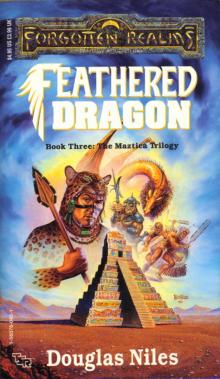 Feathered Dragon mt-3
Feathered Dragon mt-3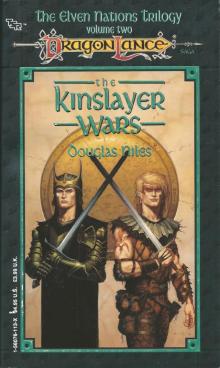 The Kinslayer Wars
The Kinslayer Wars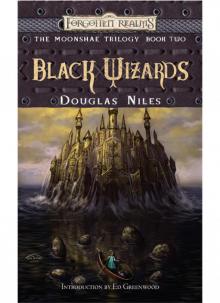 Black Wizards
Black Wizards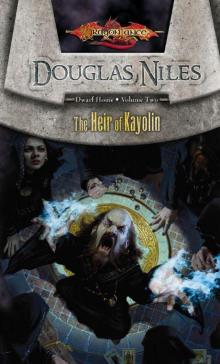 The Heir of Kayolin dh-2
The Heir of Kayolin dh-2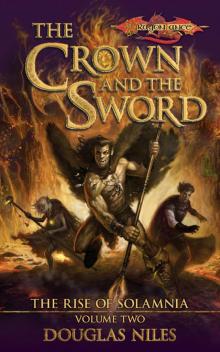 The Crown and the Sword tros-2
The Crown and the Sword tros-2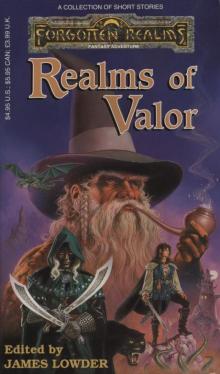 Realms of Valor a-1
Realms of Valor a-1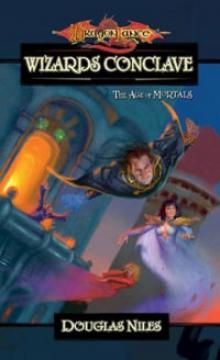 Wizards Conclave aom-5
Wizards Conclave aom-5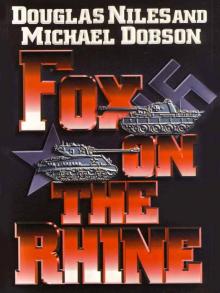 Fox On The Rhine
Fox On The Rhine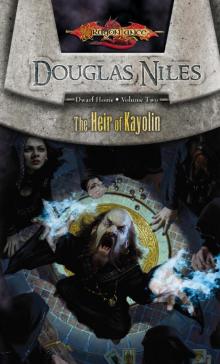 The Heir of Kayolin
The Heir of Kayolin Fox at the Front (Fox on the Rhine)
Fox at the Front (Fox on the Rhine)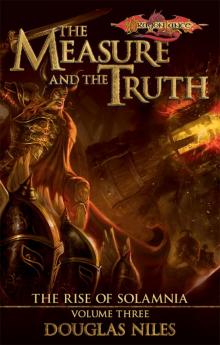 Measure and the Truth tros-3
Measure and the Truth tros-3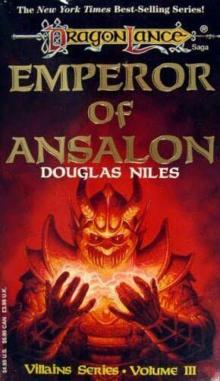 Emperor of Ansalon (d-3)
Emperor of Ansalon (d-3)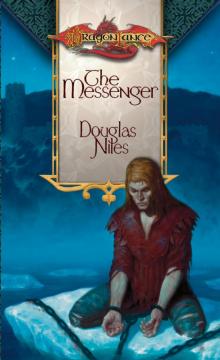 The Messenger it-1
The Messenger it-1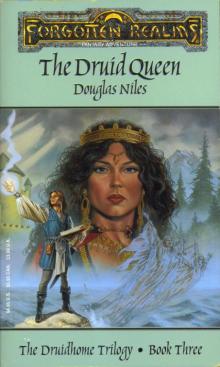 The Druid Queen tdt-3
The Druid Queen tdt-3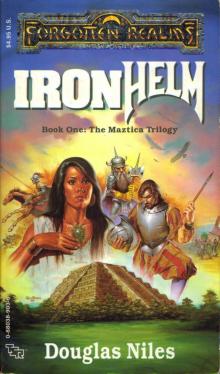 Ironhelm mt-1
Ironhelm mt-1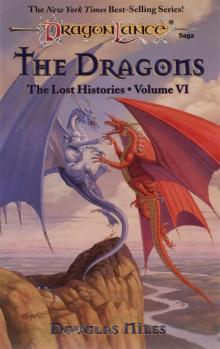 The Dragons lh-6
The Dragons lh-6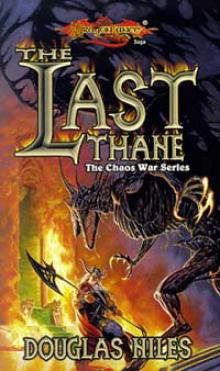 The Last Thane cw-1
The Last Thane cw-1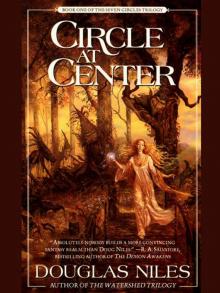 Circle at center sc-1
Circle at center sc-1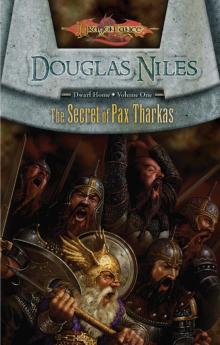 Secret of Pax Tharkas dh-1
Secret of Pax Tharkas dh-1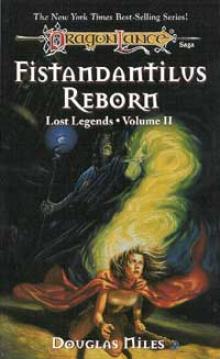 Fistanadantilus Reborn ll-2
Fistanadantilus Reborn ll-2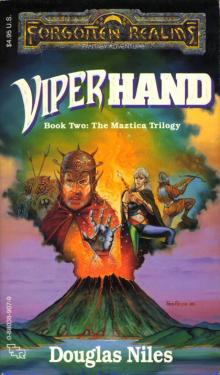 Viperhand mt-2
Viperhand mt-2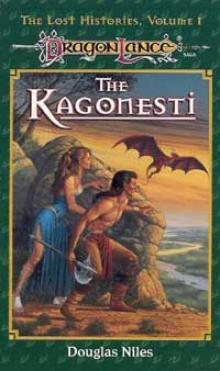 Kagonesti lh-1
Kagonesti lh-1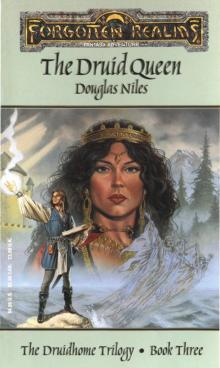 The Druid Queen
The Druid Queen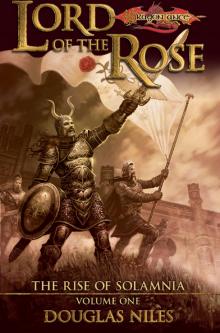 Lord of the Rose tros-1
Lord of the Rose tros-1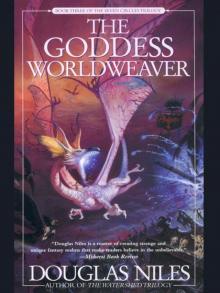 Goddess Worldweaver sc-3
Goddess Worldweaver sc-3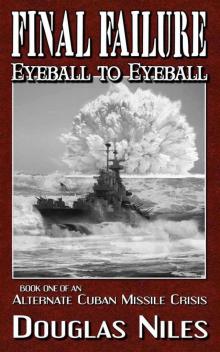 Eyeball to Eyeball (Final Failure)
Eyeball to Eyeball (Final Failure)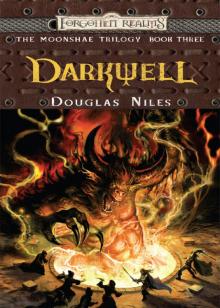 Darkwell
Darkwell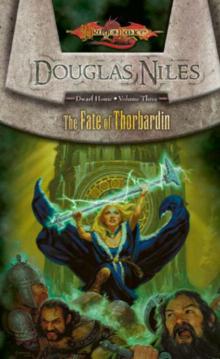 Fate of Thorbardin dh-3
Fate of Thorbardin dh-3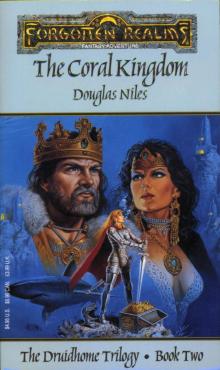 The Coral Kingdom tdt-2
The Coral Kingdom tdt-2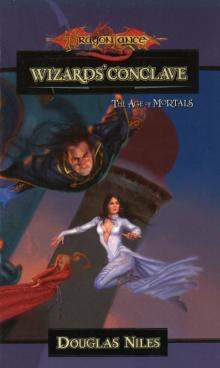 Wizard's Conclave
Wizard's Conclave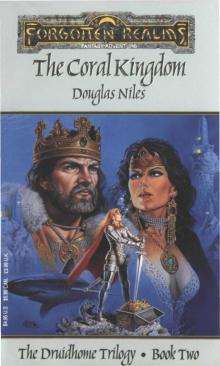 The Coral Kingdom
The Coral Kingdom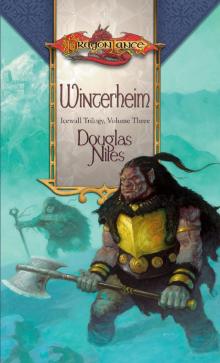 Winterheim it-3
Winterheim it-3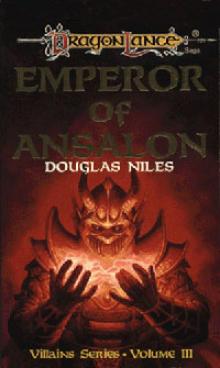 Emperor of Ansalon v-3
Emperor of Ansalon v-3 MacArthur's War: A Novel of the Invasion of Japan
MacArthur's War: A Novel of the Invasion of Japan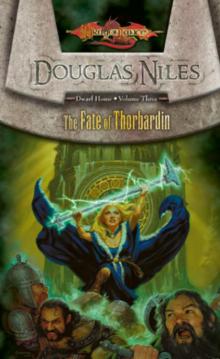 The Fate of Thorbardin
The Fate of Thorbardin The Rod of Seven Parts
The Rod of Seven Parts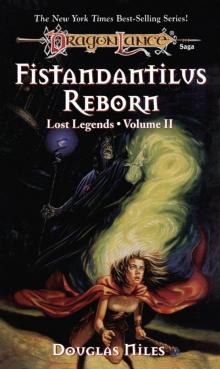 Fistandantilus Reborn
Fistandantilus Reborn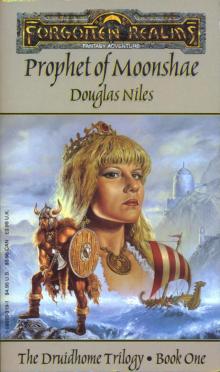 Prophet of Moonshae tdt-1
Prophet of Moonshae tdt-1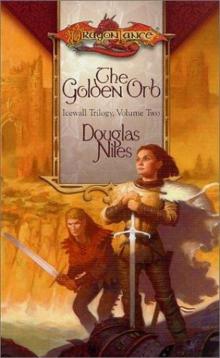 The Golden Orb i-2
The Golden Orb i-2